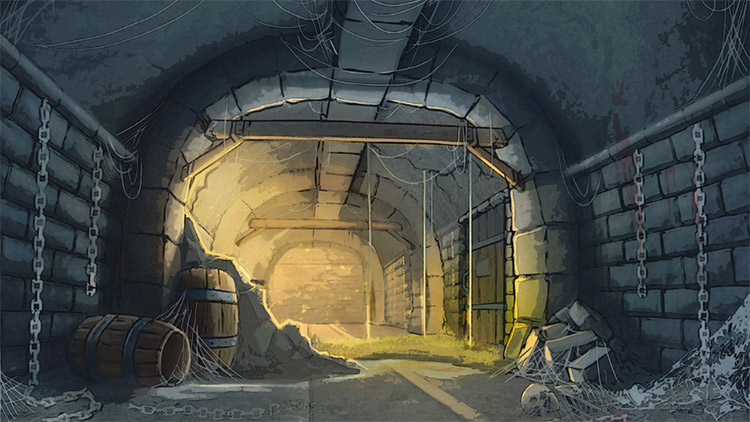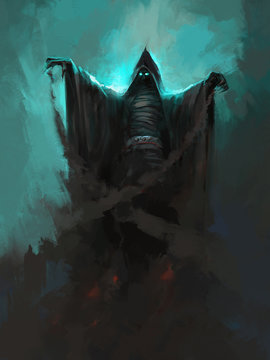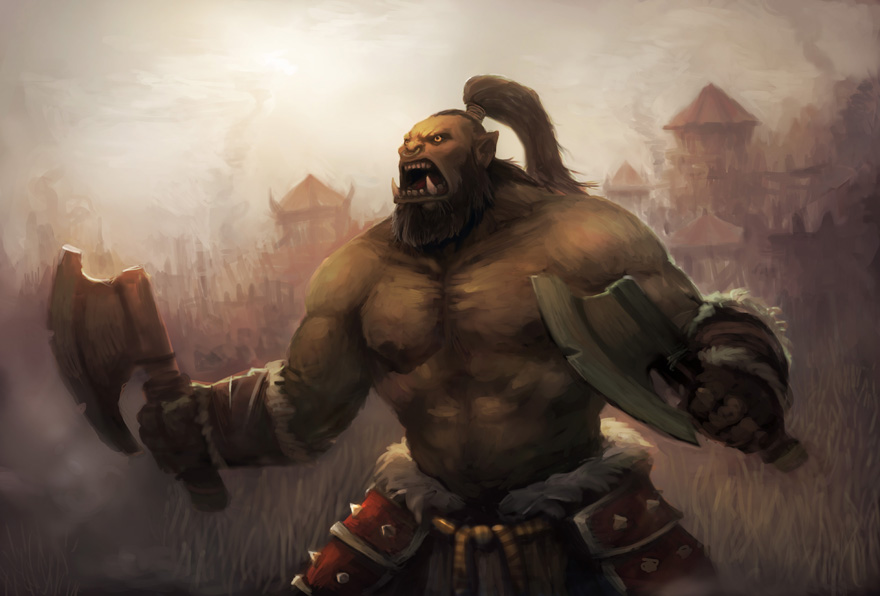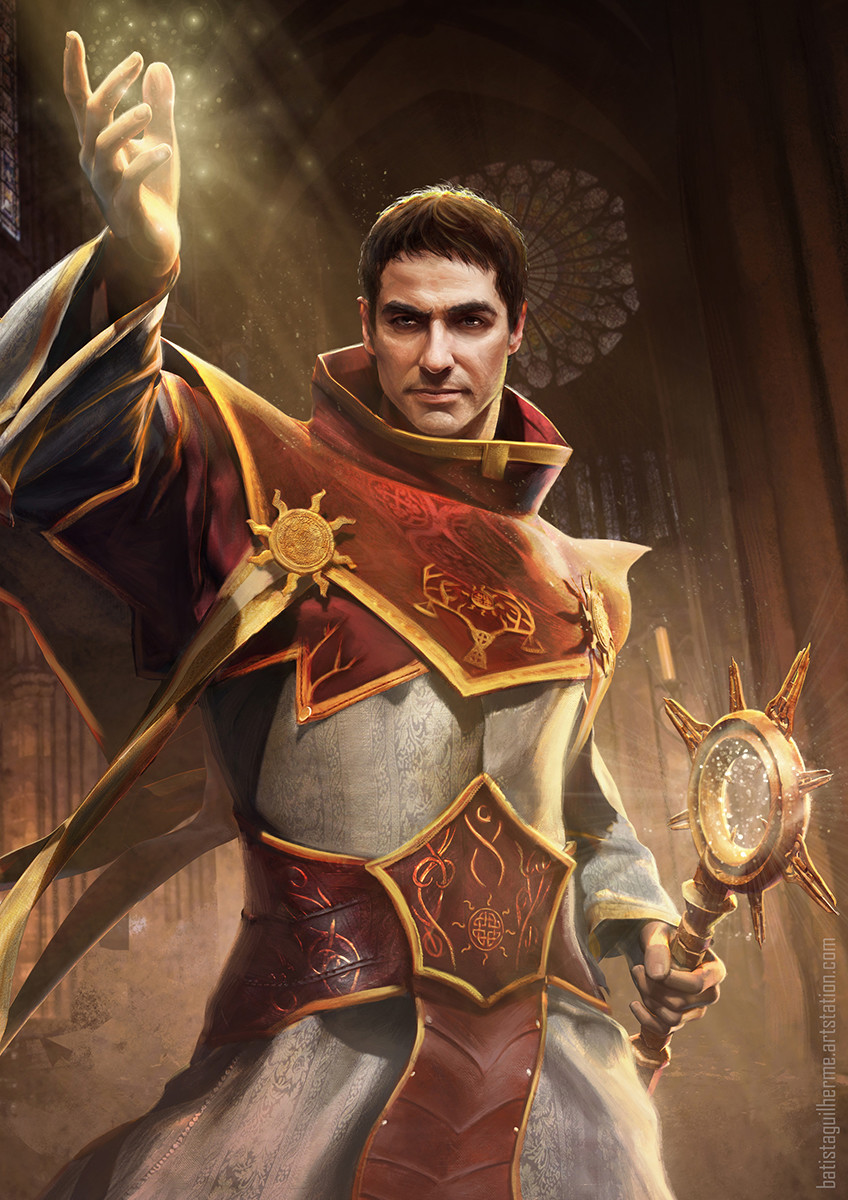Wilderness Travel in Dungeon!To simulate travel, Dungeon! highly suggests that you use a hex crawl, or at least a point crawl. There is a common belief that travel in TTRPG's is boring. If your travel is boring, that likely means you are doing it wrong. Travel shouldn't be a 3-paragraph passage where the GM talks about the lore of the world, why the mountains are a certain shape, or how cold out it is. Why? Because most people find it boring.
Travel segments also shouldn't be railroaded sections of the game where player characters must move from point A to point B and encounter X, Y, and Z things that the GM has set up. Why? Because most people find it boring.
So, what should travel be?
Simply put, travel should be unpredictable. One day could be calm and eventless, only taking 1 minute or so to fully play out. The next day could be a dangerous encounter with a magical beast from which the party barely escapes alive. Now that's exciting. The mechanics below detail how to accomplish dangerous and exciting wilderness travel. If you still wish to hand-waive travel, that is your and your players' loss.
Hex Crawls
When designing a Hex Crawl, there are a few steps. Firstly, find or create a map. Below are a few free resources to aide in doing so.
Personally, I like to draw my maps by hand and then import them to a program like Gimp, where I can use overlays to create my hexes.
Also, remember that each hex is effectively a 5-mile (or 8 kilometer) radius. 5 miles is quite a big area. Many things can be present in a single hex.
Once you have your map, you may then begin to place important locations, objectives, etc. on the map. Don't worry about fleshing out each individual settlement or dungeon. Just have a rough idea that you can expand upon once the party decides to travel there. The beauty of not handwaving travel is that travel takes time. This gives you, the GM, time to prepare things while the players still get to go on fun adventures.
Your map will slowly fill out more over time, and that's ok. Not everything should be set in stone from Session 0 anyway.
Encounters
Once content with your map and its features, you may proceed to the final step: random encounter tables. Regardless of if you like random encounters or not, you should read this step. You should still prep a list of encounters to fall back on, both combat and non-combat, so that the players have something to do during travel. If you do like random encounters, simply create your list in a numbered format, likely on a d20 table or d100 table. Once you have used an encounter on the table, you should consider replacing it. Some encounters might make sense to occur multiple times, while others will not. Use your best judgement for your campaign.
Calendar
With the core of your Hex Crawl created, you should consider a few additional steps. Creating a calendar for your campaign may seem excessive, but it is truly both easy to do and pricelessly valuable. I recommend using one of the free options below to help you create it.
Weather
A final extra step should include making a Weather Table. You may choose to roll in advance for each day on your calendar, or you may simply roll each new day. You may use a Weather Flower, like
this one by Goblin's Henchman, or simply use the weighted table I like to use as shown below. My table is not as realistic as a Weather Flower, but my players have never noticed a difference.
Step 1. Roll 2d4 to determine type of Weather present in the party's current hex. The outcome will work in almost every environment or season but will likely change in description and flavor.
2. Extreme Precipitation (Moving to a new Hex costs 1 additional Movement Point)
3. Precipitation
4. Cloudy
5. Scattered cloud cover
6. No cloud cover
7. Sunny/Windy
8. Extreme Heat/Extreme Winds (Moving to a new Hex costs 1 additional Movement Point)
Step 2. Roll 1d4 to determine the size of the Weather System, if applicable (i.e., rainstorms, snowstorms, clouds, etc.). On a 1, it is confined to that hex. On a 2, it is 2 hexes thick, etc. Then roll 1d6 to determine the direction the Weather System is moving, with 1 being north, 2 being northeast, 3 being southeast, etc. For each Movement Point the party uses (or for every 2 hours that pass), the Weather System moves 1 hex in that direction, possibly moving with the party.
Movement Points and the Encounter Die
Finally, as you may have guessed based on the Weather Table above, you must learn the mechanics of a Hex Crawl such as Movement Points and the Encounter Die. After finishing a Long Rest, the party gains 5 Movement Points. These Movement Points can be used to traverse hexes. There are 3 general types of hexes, which can be seen below.
- Normal (1 MP. Common. Includes things like grassy fields, open roads, etc.)
- Rough (2 MP. Somewhat common. Includes things like hills, forests, deserts, etc.)
- Near Impassible (3 MP. Rare. Includes things like mountains, crags, rivers, etc.)
The GM should decide what biomes (or what color or number of each type of hex) constitute each type of hex. Normal hexes only cost 1 Movement Point to traverse, while Rough hexes cost 2 Movement Points and Near Impassible hexes cost 3. For each Movement Point used, 2 hours of time passes. If a party does not have enough Movement Points to traverse a hex, they may either stop traveling for the day or they may Push Themselves. If they Push Themselves, they become Exhausted, gaining Disadvantage on all d20 rolls, all Skill Checks, and being limited to 3 Movement Points per Long Rest instead of 5. After finishing a Long Rest, an Exhausted Character may Save to recover.
As for the Encounter Die, the GM rolls 1d6 each time the party traverses a hex. On a 1, there is an encounter. If the GM is using random encounter tables, they will then roll for a random encounter. If the GM is not using random encounters, they will simply choose an encounter from their encounter list. GMs should also not be afraid to improvise new encounters depending on the terrain or other situational effects. If a 6 is rolled on the Encounter Die, there is instead a different challenge. The GM may feel free to make this anything they can think of, but a great fallback is either a Lost Check or a Skill Challenge.
For a Lost Check, one party member must roll a Survival Skill Check. If the party member succeeds, the party continues as normal. If the party member fails, however, the GM moves the players back to the previous hex and rolls another 1d6, where 1 is north, 2 is northeast, 3 is southeast, etc. The party is then moved in the rolled direction instead of their originally intended direction. This movement consumes Movement Points equal to the hex they end up in, not the originally intended hex.
For a Skill Challenge, the GM thinks up a situation where the party must use Skill Checks to bypass an obstacle or escape peril. This could be anything from crossing a frozen creek to evading a landslide to simply trying to persuade a Troll to let them cross a bridge. The players then roll 1 Skill Check each. They may be creative with how they use their Skills to potentially solve the problem, but the GM must approve these attempts. Once a character has attempted a certain Skill, pass or fail, they cannot use that Skill again this Skill Challenge. Once the group reaches a certain number of successes or failures, or once the group has logically solved the problem via their Skill Checks and the GM's discretion, the Skill Challenge ends in either success or failure. The GM may decide the rewards or consequences of a successful or failed Skill Challenge. Some good example rewards are +1 Movement Point or some treasure, while some good example consequences could be -1 Movement Point or that each party member becomes Exhausted, as detailed in the Movement Points section.
Secret Locations
If you place secret locations on your hex map, you must make a couple of choices. You may either choose that the players automatically find these locations by traversing that hex, or you may choose that they must encounter it. From there, you have one final choice. If the party traverses a hex with a secret location, you may have the party find that location if the encounter die comes up as a 1, instead of using your encounter table. Alternatively, you may decide that secret locations are so well hidden that the party must Search the Hex to find them. Searching the Hex takes Movement Points equal to the hex's normal cost, and the party does not leave the hex. Additionally, it guarantees an encounter on the Encounter Die, or the discovery of a secret location.
Point Crawls
When designing a Point Crawl, you are effectively designing a Hex Crawl with more restrictions and less structure. Simply find or draw a map of the region, labeling details and adding locations as you see fit. You should then create paths between details and locations, deciding how many Movement Points are required to fully travel one direction along that path.
From there, a Point Crawl basically becomes a Hex Crawl. For each Movement Point used, roll the Encounter Die. For each new day, roll for Weather. A calendar is still very useful even in a Point Crawl. Almost all the mechanics of a Hex Crawl (except for Lost Checks) are still used, simply the map looks different and functions a little differently.
The Average Adventuring Day
With all of these details in mind, the average adventuring day out in the wilderness, whether you are playing a hex crawl or a point crawl, should be similar to the adventuring day outlined below. It does not have to be as exact or even follow the same patterns or times, but the breakdown below provides a realistic schedule to follow.
Midnight to 6 AM: Long Resting
6 AM to 7 AM: Breakfast/Preparations
7 AM to 11 AM: 2 Movement Points
11 AM to Noon: Lunch/Short Rest
Noon to 6 PM: 3 Movement Points
6 PM to 10 PM: Dinner/Downtime
10 PM to Midnight: Long Resting






















